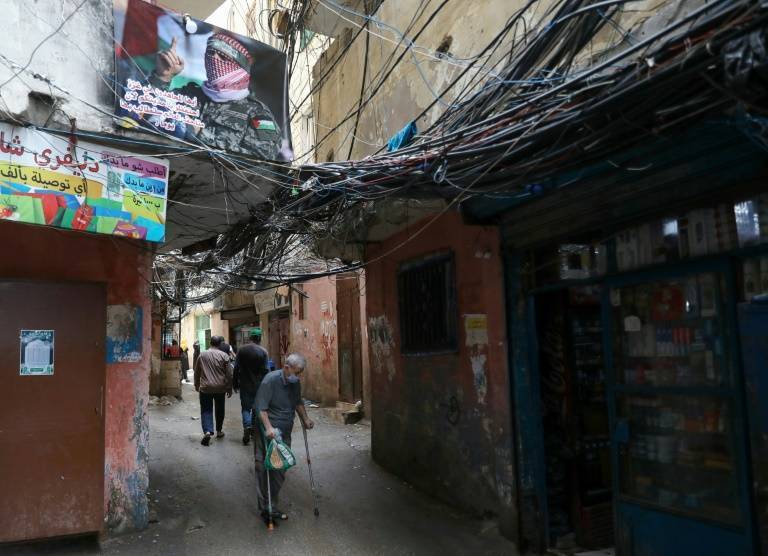
The Palestinian refugee camp of Chatila, south of Beirut, on January 7, 2017. (Credit: Anwar Amro/AFP/File photo)
The United Nations Agency for Palestinian Refugees (UNRWA) appealed Friday for $13 million in funding to support Palestinians in Lebanon, as the country reels from an unprecedented economic crisis.
"Palestine refugees, living in overcrowded camps ... are at the end of their rope," UNRWA chief Philippe Lazzarini said in a statement, adding that "almost every Palestine refugee in Lebanon lives in poverty." He said UNRWA was "urgently appealing for $13 million" in funding for cash assistance to families, primary health care services and to keep the agency's schools open until the end of this year.
Palestinian refugees in Lebanon are "often unable to even scrape by," he said, adding: "Our assistance is a drop in an ocean of despair."
For the past three years, Lebanon has been in the throes of one of the worst economic crises in recent global history, according to the World Bank.
"Unprecedented levels of poverty, skyrocketing unemployment rates and increasing despair are ... severely hitting the Lebanese people and Syrian and Palestine refugees," Lazzarini said.
Lebanon hosts about 210,000 Palestinian refugees, including 30,000 who fled Syria after the war erupted in 2011, according to UNRWA. It also hosts more than one million Syrian refugees.
Most Palestinians live in 12 official refugee camps in squalid conditions, worsened by Lebanon's financial meltdown, and face a variety of legal restrictions, including on their employment. According to the UN agency, 93 percent of all Palestinian refugees in Lebanon are poor.
The situation has pushed hundreds to attempt perilous sea journeys in hope of reaching Europe. Palestinians were among the more than 100 dead after a migrant boat that left from Lebanon's north sank off neighboring Syria, in one of the deadliest such shipwrecks in the eastern Mediterranean.
"Dying from poverty will not be much different from dying at sea," said a mother of three identified as Iman, who lives in Beirut's Mar Elias Palestinian refugee camp. "Life in Lebanon has become unbearable," she said, according to the UNRWA statement.